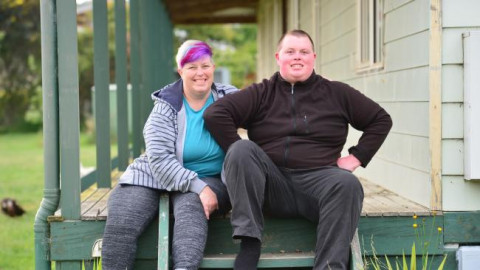
Rick Morton, The Australian
The $22 billion National Disability Insurance Scheme is being tested in the federal court on the “opacity” of its funding decisions in a key case that could have significant implications for the support provided to disabled people and the financial sustainability of the entire project.
Liam McGarrigle, 21, has autism and an intellectual disability and is fighting the NDIS agency in the Federal Court of Australia over an initial decision to only fund $8000 worth of his taxi trips to support programs the agency found he ought to attend, including both activities in Geelong and his job at a low-wage Australian Disability Enterprise.
On review at the Administrative Appeals Tribunal the member found Mr McGarrigle’s taxi costs were closer to $15,850 a year — he lives 25km outside of Victoria’s Geelong with no public transport — but, accounting for the “financial sustainability of the scheme” the tribunal found the NDIS should only cover 75 per cent of these trips.
It is this decision Mr McGarrigle is challenging in the court.
Chris Horan QC, counsel for Mr McGarrigle, told the court the figure of 75 per cent was apparently selected in a “rough and ready” manner, without any evidence.
“The tribunal accepted an invitation made by the respondent (the NDIA) to impose a balancing factor of financial sustainability without any evidence or supporting material for it,” he said this morning in Melbourne.
Further, he said there was no dispute the NDIS is not means-tested on behalf of the client but the expectation in the Act that families, carers and other community organisations should pick up the tab for unmet need is “means-testing by the backdoor route”.
In the original promise of the scheme, people were told that whatever their proven “reasonable” need, they would receive an uncapped amount of funding to meet it regardless of their circumstances.
As the NDIS builds from 30,000 people to 460,000 people over the next three years, however, it has begun facing significant cost pressures.
Mr Horan said if the agency or tribunal were going to make claims about the threatened financials of the scheme, they owed it to people to explain precisely how and why that might be the case.
“One could expect the annual reports or the scheme actuary could provide some material about the size of the scheme, the assets, it might provide some basis for what the consequences might be if the extra $4000 (for Liam) was funded more widely,” he said.
Mr McGarrigle’s activities were considered reasonable and necessary and this is not in dispute but while Mr Horan argued there is no reference in the Act to partial funding scheme obligations, counsel for the NDIA Joanna Davidson argued “equally there is no indication that the supports ought to be fully funded”.
“We shouldn’t be given the choice between fully funding or no funding at all, we should be given the choice of partial funding,” she said.
“There is a real danger if a real rigid approach is taken to what can and can’t be done it pushes the respondent down this path where once you go down it, it removes a degree of flexibility.”
Ms Davidson argued it was better for the scheme to provide a bucket of money and let people spend it on the support however they wish than to have to justify precisely how and when and where, for example, taxi trips should be taken.
The hearing continues this afternoon.
from http://www.theaustralian.com.au/nationa…;
see also Federal court rules NDIS must fully fund 'necessary' supports and services 29/3/2017.